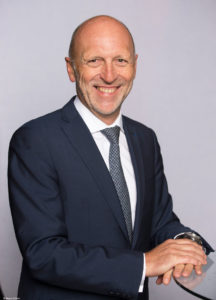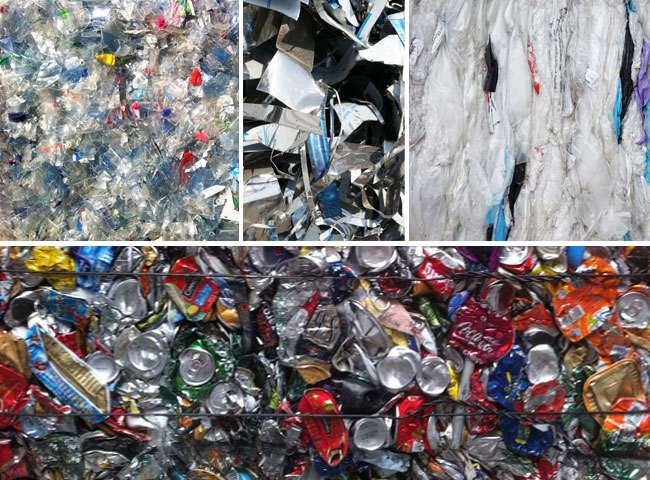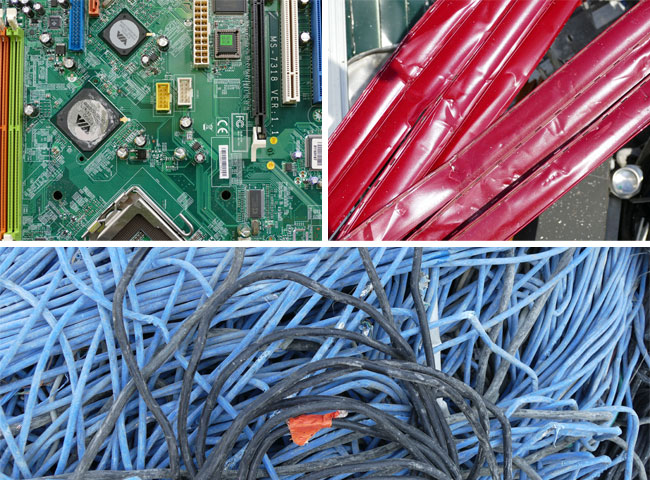
Could you introduce us to FEDEREC, its competencies and tasks? (Briefly)
FEDEREC, created in 1945, is the French federation representative of recycling companies. It represents a sector of 1,000 companies, that is to say 2,000 recycling sites in France that have a system of sorting and treating waste as well as the marketing of raw materials from recycling. Our federation brings together all 12 recycling sectors: metals, plastic, wood, cardboard, textile… and is made up of 8 regional unions. In France, our sector is responsible for 28,800 direct non-relocatable jobs and has a turnover of 9 billion euros. Our companies have in their DNA a very strong capacity of adaptation and investment since each year around 500 million euros are invested in the modernization of our industrial tools, ie 6% of our turnover. FEDEREC’s mission is to represent its members to political bodies, the press and social partners.
What is your position on incorporating recycled material into product production? And what would be the actual benefits for our environment?
The incorporation of raw material derived from recycling is the cornerstone of recycling. Without industrial demand for this material, there can be no viable business model and therefore no recycling. However, the demand for recycled raw materials is closely linked to the fluctuation of the prices of fossil or primary raw materials. For example, when oil prices fall, the demand for recycled plastic slows or even stops. If we want to build a perennial circular economy, we must break with this dependence, it is the whole issue of public policies. To do this, we must internalize the positive externalities of recycling in the price of recycled material. Thanks to a study conducted by FEDEREC in partnership with ADEME, we now know how to measure CO2 and energy gains through recycling. For all materials, recycling saves 22.5 million tons of CO2 and 124 TWH of energy. These environmental benefits must be integrated into the price. To achieve this, FEDEREC proposes to set up a market mechanism following the example of energy efficiency certificates and phytosanitary products efficiency certificates. In terms of resource savings permitted by recycling, these certificates would allow economic actors to incorporate raw materials from recycling and to monetize their certificate of incorporation in a dedicated market. From a business point of view, this mechanism would provide support to a regulatory constraint of incorporation without reducing the State’s budget.
For the Extended Producer Responsibility (EPR) sectors, are the European Directive and the Waste Prevention Plan sufficient? What are the EPRs that work, and what about the others? What are the ones that should be established?
The European Directive has harmonized the practices concerning the EPR sectors and has also created some such as the EPR on industrial and commercial packaging waste. France is already very advanced on this issue since we have created 14, and others are proposed as part of the ongoing discussions of the Circular Economy Bill. EPR creations are relevant when a particular economic model for waste management is not found or if the sector is not yet structured. Today, some of the EPR sectors that the European or French public authorities want concern sectors that have existed for many years in a contractual framework between the waste holder and the waste management operator with very good recycling rates. In this context, an EPR may not be necessary and above all, the creation of an eco-organism that would interfere in this contractual relationship with the risk of a single service provider could be counterproductive. As we see on a daily basis, eco-organizations are gaining more and more power, creating an imbalanced relationship between them and waste management operators. For these sectors, FEDEREC proposes to change the regulatory framework by allowing economic actors to organize the EPR sector without a producer responsibility organization (PRO) while guaranteeing data traceability and improving the performance of re-employment, re-use, recycling and eco-design.
At the European level, there is a lot of talk about deposit-refund systems for recycling, how is it related to EPR? And how can PROs contribute to their implementation? What are the advantages and disadvantages?
A deposit-refund system for recycling is a way for marketers to meet the requirements of an EPR system. In this model, the PRO role is the management of the stratagem from a financial and logistic point of view by the establishment of deposit returning machines on the territory. If a deposit-refund system for recycling can be relevant and effective in some European countries, it is not the case in France because our country has chosen a completely different model for 25 years: that of the development of a public service of household waste management. Indeed, no European country having implemented the directive had adopted such a public operation based on recycling instructions by means of differentiated waste collection. The deposit-refund system for recycling privatizes the waste management of the deposits concerned. The risks of the deposit-refund system in France are numerous. First, it cuts back the budget of communities by privatizing the deposits that yield and leave them only with the deposits whose management is now expensive (eg jars of yogurts or ham trays). Then, it gives a deadly blow to the French portfolio because of undiscounted deposits, cash advance and the increase in local taxation. Finally, local shops may see their customers orient themselves even more towards supermarkets, the only ones capable of accommodating this type of system. Added to this is the fact that these risks would be taken even though the environmental benefit of the deposit-refund system for recycling has not been proven. In France, we can achieve collection and recycling objectives with the existing levers, such as the extension of recycling instructions or incentive taxes, as well as by deploying an ambitious plan for selective waste collection that is non-domestic. We must provide a solution to all packaging and not just the plastic bottles and cans that are the most recyclable household waste and represent only 6% of the packaging consumed.
 Finally, what would be the message that you would like to send to the European institutions and to the citizens covering all these subjects and also in a more general way?
Finally, what would be the message that you would like to send to the European institutions and to the citizens covering all these subjects and also in a more general way?
Our sector welcomes a real awareness of the European and national institutions regarding the development of a circular economy and thus the preservation of our resources. This is an excellent dynamic that needs to be intensified in responding to the challenges of climate change. On the other hand, we must be vigilant about the pragmatic nature of adapted legislation. Behind the circular economy, there are economic players who need a certain regulatory visibility in order to survive as well as a real coherence of public policies. The example of the regulatory decline in landfill illustrates this point. In France, reducing landfills by 50% by 2025 means finding markets for 8 million tons that are diverted from landfills. Public policies enabling the development of new material or energy markets via solid fuel should be taken at the same time to avoid creating blockages. Economic, administrative and political times must be aligned. The circular economy must also mean the construction of a real consumer industry of these materials if the European Union wishes to preserve economic value in its territory.
Our contact information:
FEDEREC, La fédération des Entreprises du recyclage
101, rue de Prony – 75017 Paris
01 40 54 01 94
www.federec.com – accueil@federec.com




















